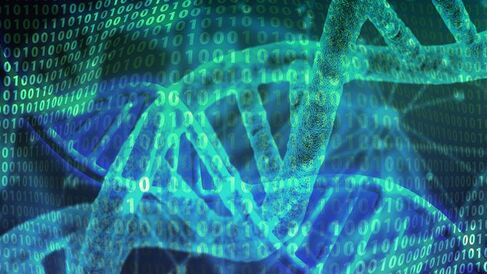
Whole genome sequencing of tumour cells could help predict the prognosis of a patient’s cancer and offer clues to identify the most effective treatment, suggests an international study published today in Nature Medicine.
Previously, it was like going on a voyage with only a limited map, but now, with whole genome sequencing we have a much better, more detailed map and know the best route to reach our destination
Serena Nik-Zainal
Our DNA, the human genome, comprises of a string of molecules known as nucleotides. These are represented by the letters A, C, G and T. Sometimes, changes occur in the ‘spelling’ of our DNA – an A becomes a G, for example. These changes, known as mutations, can be caused by a number of factors, some spontaneous, others environmental, such as exposure to tobacco smoke or to ultraviolet light, and all leave characteristic signatures on the genome.
As cells divide and multiply, they make copies of their DNA, so any spelling mistakes will be reproduced. Over time, the number of errors accumulates, leading to uncontrolled cell growth – the development of tumours.
Whole genome sequencing (WGS) is a technique that involves reading the entire genetic blueprint of a cancer cell and comparing it to a patient’s healthy cells to see how the DNA has mutated. By studying all the mutations present in a whole cancer genome and seeking all the signatures in them, it is possible to identify the various factors that have acted upon the tumour.
To understand whether WGS might be useful in a clinical setting, Cambridge researchers teamed up with colleagues in Sweden running a population-wide project called SCAN-B, which has been recruiting all women diagnosed with breast cancer in the South of Sweden since 2010. This was critical as SCAN-B has a large amount of clinical outcome data.
This international collaboration of researchers used WGS to analyse tumours from patients who had been diagnosed as having triple negative breast cancers. These cancers are so-called because they lack three key molecules known as receptors. They account for around 9% of breast cancers and are associated with poorer outcomes. They are also more common amongst women with African and Asian ancestry.
“Whole genome sequencing gives us a complete view of the cancer genome. It reveals many things that we couldn’t see previously, because we simply did not look for them,” explains Dr Serena Nik-Zainal from the Medical Research Council Cancer Unit at the University of Cambridge, who led the study.
“The potential for whole genome sequencing to open up a personalised approach to treating cancer is huge,” says Dr Nik-Zainal. “In the past, the cost and issues with managing the huge volume of data created barriers to its widespread application. But we are moving closer to a time where it can be routinely offered to all patients, with the potential to transform the management of even difficult-to-treat cancers.”
To read the full article, please visit the University of Cambridge Website.
